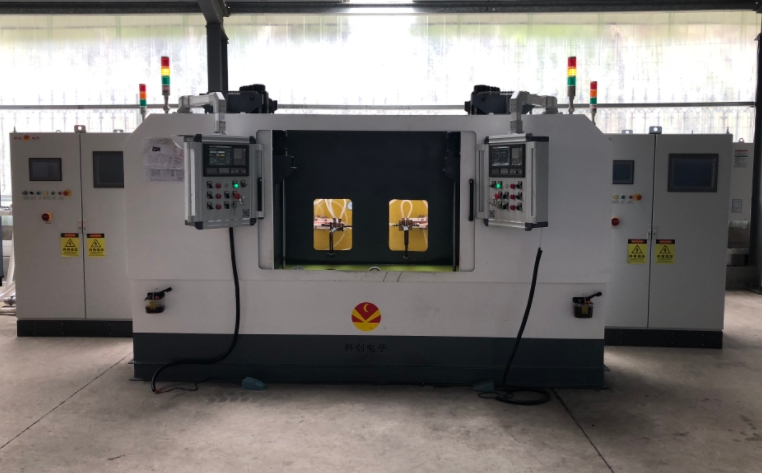- 18
- Sep
CNC quenching machine
CNC quenching machine
The machine tool is a vertical double-station CNC quenching machine, and the workpiece (worktable) moves up and down. The machine tool can complete fixed-point timing overall quenching, continuous scanning quenching, segmented positioning scanning quenching and other functions. The mechanical structure of the machine tool adopts a reasonable and advanced design. The main and auxiliary guide rails are all linear bearings, which have high precision, small friction, long life, chrome-plated surface, and corrosion resistance. The transmission parts are made of ball screws, which have high speed, wear resistance, excellent performance and reliable quality. It is suitable for induction hardening of the surface of various shaft and disc workpieces, and is widely used in the induction heat treatment field of automobiles, tractors, textiles, military, aerospace science and engineering, engineering machinery and other industries. It is suitable for the quenching of single and batch workpieces, with reasonable structure, complete functions and convenient operation and use.
The machine tool adopts CNC control system with comprehensive functions, stable and reliable quality, and low failure rate. LCD display, Chinese interface, and operation panel provide all keys for CNC operation, programming and machine control actions. The selection, deletion, modification, and calling of process programs can be realized through the numerical control keyboard, and the system can store multiple parts quenching process programs. The system is equipped with power failure brake protection and offside protection. It has the function of alarm and diagnosis information, which has high safety and reliability.
The CNC hardening machine tool adopts advanced DSP intelligent digital induction heating power supply and integrated energy quality analysis system. The energy quality analysis system can monitor and record important parameters such as quenching temperature, power supply power, power supply frequency, quenching fluid flow and temperature during the heating process of each product, and real-time comparison of process data to improve product quenching quality and judge process problems And other functions.

